#computer requirements for data science
Text
🚀💻 The Ultimate Guide to Laptops for Data Science: Finding Your Perfect Machine 💻🚀
Are you diving into the exciting world of data science? Whether you're crunching numbers, running complex algorithms, or visualizing data, having the right laptop is crucial for your success. Here's your ultimate guide to finding the perfect machine for your data science journey:
Powerful Processor: Look for laptops equipped with Intel Core i7 or AMD Ryzen 7 processors. These offer the horsepower needed for running resource-intensive data analysis tasks with ease.
Ample RAM: Data science workloads can be memory-intensive. Aim for at least 16GB of RAM to ensure smooth multitasking and handling of large datasets.
High-Performance Graphics: While not essential for all data science tasks, a dedicated GPU can significantly accelerate certain computations, especially those involving deep learning and neural networks.
Storage Space: Opt for SSD storage for faster data access and program loading times. Aim for at least 512GB to accommodate your datasets, software tools, and projects.
Portability: Data scientists are often on the move, so consider a lightweight and compact laptop that doesn't compromise on performance. Look for models with a durable build and long battery life for extended work sessions.
Quality Display: A high-resolution display with accurate color reproduction is essential for data visualization and analysis. Consider laptops with IPS panels for wide viewing angles and vibrant colors.
Connectivity Options: Ensure your laptop has ample ports for connecting external devices like monitors, keyboards, and data storage drives. Thunderbolt 3 ports are a bonus for high-speed data transfer.
Comfortable Keyboard and Trackpad: Since you'll be spending long hours typing and navigating, a comfortable keyboard and responsive trackpad are must-haves for a pleasant user experience.
Reliable Cooling System: Data science workloads can push your laptop's hardware to the limit, so choose a model with an effective cooling system to prevent overheating and maintain optimal performance.
Budget Considerations: While top-of-the-line specs are desirable, consider your budget constraints and prioritize components based on your specific data science needs.
Remember, the perfect laptop for data science is the one that best fits your workflow and preferences. Consider these factors carefully to make an informed decision and embark on your data science journey with confidence! 🌟
DataScience #Laptops #Tech #DataAnalysis #MachineLearning #AI #Computers #Technology #Guide #Tips #Advice
#hp z data science#laptop data science#top 10 laptops for data science#recommended laptops for data science#laptop requirements for data science students#best laptops for data science professionals#most powerful laptop for data scientist#data science laptop#la science des données#lenovo laptops for data science#best laptop for data#best laptops for data science students#laptops for data engineers#hp laptops for data science#good laptops for data science#best laptop for data science#laptop for data science#cheap laptop for data science#dell laptops for data science#cheap laptops for data science#computer requirements for data science#best laptops for data science#best laptops for data science reddit#best budget laptops for data science#affordable laptops for data science#best laptops for machine learning and data science#laptops for data science and data analysis#are gaming laptops good for data science#which laptop to buy for data science#which laptop is best for data science students
0 notes
Text
I'm not an extrovert. At all. In everyday life, I'm a yapper, sure, but I need someone to first assure me I am okay to yap, so I don't start conversations, even when I really want to join in sometimes! It's just the social anxiety acting up. God knows where from and why I lose a lot of my inhibitions when it comes to talking to people about music. I don't know where the confidence has suddenly sprung from. I've made a crazy amount of friends in musical circles, either just talking to people about common music or (since it is after all in music circles) talking to bands about their own music. I let out a sigh of relief any time an interaction goes well, because in truth it's going against my every instinct. I wish I could do that in everyday life
#like that's the point where we need to remind everyone around me that as much as I say#radio is 'a job'-- it's not 'my job' lol. I wish I was this interested in data science#but like. Honestly?? I'm not even a data scientist!? I answered a few questions about classical AI having come from a computer science back#background and now people are saying to me 'I know you're a data scientist and not a programmer' sir I am a computer scientist#what are you on about#and like I guess I get to google things and they're paying me so I'm not complaining but like I am not a data scientist#my biggest data scientist moment was when I asked 'do things in data science ever make sense???' and a bunch of data scientists went#'no :) Welcome to the club' ???????#why did I do a whole ass computer science degree then. Does anyone at all even want that anymore. Has everything in the realm of#computer science just been Solved. What of all the problems I learned and researched about. Which were cool. Are they just dead#Ugh the worst thing the AI hype has done rn is it has genuinely required everyone to pretend they're a data scientist#even MORE than before. I hate this#anyway; I wish I didn't hate it and I was curious and talked to many people in the field#like it's tragicomedy when every person I meet in music is like 'you've got to pursue this man you're a great interviewer blah blah blah'#and like I appreciate that this is coming from people who themselves have/are taking a chance on life#but. I kinda feel like my career does not exist anymore realistically so unless 1) commercial radio gets less shitty FAST#2) media companies that are laying off 50% of their staff miraculously stop or 3) Tom Power is suddenly feeling generous and wants#a completely unknown idiot to step into the biggest fucking culture show in the country (that I am in no way qualified for)#yeah there's very very little else. There's nothing else lol#Our country does not hype. They don't really care for who you are. f you make a decent connection with them musically they will come to you#Canada does not make heroes out of its talent. They will not be putting money into any of that. Greenlight in your dreams.#this is something I've been told (and seen) multiple times. We'll see it next week-- there are Olympic medallists returning to uni next wee#no one cares: the phrase is 'America makes celebrities out of their sportspeople'; we do not. Replace sportspeople with any public professi#Canada does not care for press about their musicians. The only reason NME sold here was because Anglophilia not because of music journalism#anyway; personal
6 notes
·
View notes
Text
not a techbro or a tech lover but a secret third thing (tech hater)
#sorry i don't like AI i don't like touchscreens i don't like how everything's done on mobile i don't like data science#i do not find a single tech trend interesting i sit in my boring hole and look at cybersecurity and systems#u ask me about chatgpt and i shrug and walk away#computer science majors who hate tech yes we exist#i picked the wrong major on god#and yet.... i still want to take more classes than required for my program...#oTL
8 notes
·
View notes
Text
Holy CRAP the UN Cybercrime Treaty is a nightmare
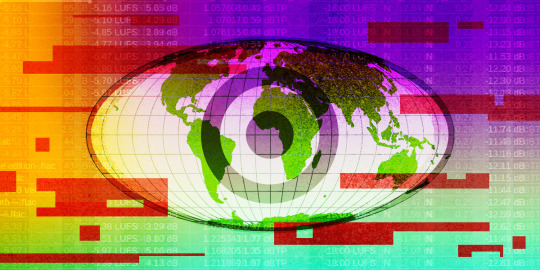
Support me this summer on the Clarion Write-A-Thon and help raise money for the Clarion Science Fiction and Fantasy Writers' Workshop!

If there's one thing I learned from all my years as an NGO delegate to UN specialized agencies, it's that UN treaties are dangerous, liable to capture by unholy alliances of authoritarian states and rapacious global capitalists.
Most of my UN work was on copyright and "paracopyright," and my track record was 2:0; I helped kill a terrible treaty (the WIPO Broadcast Treaty) and helped pass a great one (the Marrakesh Treaty on the rights of people with disabilities to access copyrighted works):
https://www.wipo.int/treaties/en/ip/marrakesh/
It's been many years since I had to shave and stuff myself into a suit and tie and go to Geneva, and I don't miss it – and thankfully, I have colleagues who do that work, better than I ever did. Yesterday, I heard from one such EFF colleague, Katitza Rodriguez, about the Cybercrime Treaty, which is about to pass, and which is, to put it mildly, terrifying:
https://www.eff.org/deeplinks/2024/07/un-cybercrime-draft-convention-dangerously-expands-state-surveillance-powers
Look, cybercrime is a real thing, from pig butchering to ransomware, and there's real, global harms that can be attributed to it. Cybercrime is transnational, making it hard for cops in any one jurisdiction to handle it. So there's a reason to think about formal international standards for fighting cybercrime.
But that's not what's in the Cybercrime Treaty.
Here's a quick sketch of the significant defects in the Cybercrime Treaty.
The treaty has an extremely loose definition of cybercrime, and that looseness is deliberate. In authoritarian states like China and Russia (whose delegations are the driving force behind this treaty), "cybercrime" has come to mean "anything the government disfavors, if you do it with a computer." "Cybercrime" can mean online criticism of the government, or professions of religious belief, or material supporting LGBTQ rights.
Nations that sign up to the Cybercrime Treaty will be obliged to help other nations fight "cybercrime" – however those nations define it. They'll be required to provide surveillance data – for example, by forcing online services within their borders to cough up their users' private data, or even to pressure employees to install back-doors in their systems for ongoing monitoring.
These obligations to aid in surveillance are mandatory, but much of the Cybercrime Treaty is optional. What's optional? The human rights safeguards. Member states "should" or "may" create standards for legality, necessity, proportionality, non-discrimination, and legitimate purpose. But even if they do, the treaty can oblige them to assist in surveillance orders that originate with other states that decided not to create these standards.
When that happens, the citizens of the affected states may never find out about it. There are eight articles in the treaty that establish obligations for indefinite secrecy regarding surveillance undertaken on behalf of other signatories. That means that your government may be asked to spy on you and the people you love, they may order employees of tech companies to backdoor your account and devices, and that fact will remain secret forever. Forget challenging these sneak-and-peek orders in court – you won't even know about them:
https://www.eff.org/deeplinks/2024/06/un-cybercrime-draft-convention-blank-check-unchecked-surveillance-abuses
Now here's the kicker: while this treaty creates broad powers to fight things governments dislike, simply by branding them "cybercrime," it actually undermines the fight against cybercrime itself. Most cybercrime involves exploiting security defects in devices and services – think of ransomware attacks – and the Cybercrime Treaty endangers the security researchers who point out these defects, creating grave criminal liability for the people we rely on to warn us when the tech vendors we rely upon have put us at risk.
This is the granddaddy of tech free speech fights. Since the paper tape days, researchers who discovered defects in critical systems have been intimidated, threatened, sued and even imprisoned for blowing the whistle. Tech giants insist that they should have a veto over who can publish true facts about the defects in their products, and dress up this demand as concern over security. "If you tell bad guys about the mistakes we made, they will exploit those bugs and harm our users. You should tell us about those bugs, sure, but only we can decide when it's the right time for our users and customers to find out about them."
When it comes to warnings about the defects in their own products, corporations have an irreconcilable conflict of interest. Time and again, we've seen corporations rationalize their way into suppressing or ignoring bug reports. Sometimes, they simply delay the warning until they've concluded a merger or secured a board vote on executive compensation.
Sometimes, they decide that a bug is really a feature – like when Facebook decided not to do anything about the fact that anyone could enumerate the full membership of any Facebook group (including, for example, members of a support group for people with cancer). This group enumeration bug was actually a part of the company's advertising targeting system, so they decided to let it stand, rather than re-engineer their surveillance advertising business.
The idea that users are safer when bugs are kept secret is called "security through obscurity" and no one believes in it – except corporate executives. As Bruce Schneier says, "Anyone can design a system that is so secure that they themselves can't break it. That doesn't mean it's secure – it just means that it's secure against people stupider than the system's designer":
The history of massive, brutal cybersecurity breaches is an unbroken string of heartbreakingly naive confidence in security through obscurity:
https://pluralistic.net/2023/02/05/battery-vampire/#drained
But despite this, the idea that some bugs should be kept secret and allowed to fester has powerful champions: a public-private partnership of corporate execs, government spy agencies and cyber-arms dealers. Agencies like the NSA and CIA have huge teams toiling away to discover defects in widely used products. These defects put the populations of their home countries in grave danger, but rather than reporting them, the spy agencies hoard these defects.
The spy agencies have an official doctrine defending this reckless practice: they call it "NOBUS," which stands for "No One But Us." As in: "No one but us is smart enough to find these bugs, so we can keep them secret and use them attack our adversaries, without worrying about those adversaries using them to attack the people we are sworn to protect."
NOBUS is empirically wrong. In the 2010s, we saw a string of leaked NSA and CIA cyberweapons. One of these, "Eternalblue" was incorporated into off-the-shelf ransomware, leading to the ransomware epidemic that rages even today. You can thank the NSA's decision to hoard – rather than disclose and patch – the Eternalblue exploit for the ransoming of cities like Baltimore, hospitals up and down the country, and an oil pipeline:
https://en.wikipedia.org/wiki/EternalBlue
The leak of these cyberweapons didn't just provide raw material for the world's cybercriminals, it also provided data for researchers. A study of CIA and NSA NOBUS defects found that there was a one-in-five chance of a bug that had been hoarded by a spy agency being independently discovered by a criminal, weaponized, and released into the wild.
Not every government has the wherewithal to staff its own defect-mining operation, but that's where the private sector steps in. Cyber-arms dealers like the NSO Group find or buy security defects in widely used products and services and turn them into products – military-grade cyberweapons that are used to attack human rights groups, opposition figures, and journalists:
https://pluralistic.net/2021/10/24/breaking-the-news/#kingdom
A good Cybercrime Treaty would recognize the perverse incentives that create the coalition to keep us from knowing which products we can trust and which ones we should avoid. It would shut down companies like the NSO Group, ban spy agencies from hoarding defects, and establish an absolute defense for security researchers who reveal true facts about defects.
Instead, the Cybercrime Treaty creates new obligations on signatories to help other countries' cops and courts silence and punish security researchers who make these true disclosures, ensuring that spies and criminals will know which products aren't safe to use, but we won't (until it's too late):
https://www.eff.org/deeplinks/2024/06/if-not-amended-states-must-reject-flawed-draft-un-cybercrime-convention
A Cybercrime Treaty is a good idea, and even this Cybercrime Treaty could be salvaged. The member-states have it in their power to accept proposed revisions that would protect human rights and security researchers, narrow the definition of "cybercrime," and mandate transparency. They could establish member states' powers to refuse illegitimate requests from other countries:
https://www.eff.org/press/releases/media-briefing-eff-partners-warn-un-member-states-are-poised-approve-dangerou

If you'd like an essay-formatted version of this post to read or share, here's a link to it on pluralistic.net, my surveillance-free, ad-free, tracker-free blog:
https://pluralistic.net/2024/07/23/expanded-spying-powers/#in-russia-crime-cybers-you

Image:
EFF
https://www.eff.org/files/banner_library/cybercrime-2024-2b.jpg
CC BY 3.0
https://creativecommons.org/licenses/by/3.0/us/
837 notes
·
View notes
Text
Caution: Universe Work Ahead 🚧
We only have one universe. That’s usually plenty – it’s pretty big after all! But there are some things scientists can’t do with our real universe that they can do if they build new ones using computers.
The universes they create aren’t real, but they’re important tools to help us understand the cosmos. Two teams of scientists recently created a couple of these simulations to help us learn how our Nancy Grace Roman Space Telescope sets out to unveil the universe’s distant past and give us a glimpse of possible futures.
Caution: you are now entering a cosmic construction zone (no hard hat required)!

This simulated Roman deep field image, containing hundreds of thousands of galaxies, represents just 1.3 percent of the synthetic survey, which is itself just one percent of Roman's planned survey. The full simulation is available here. The galaxies are color coded – redder ones are farther away, and whiter ones are nearer. The simulation showcases Roman’s power to conduct large, deep surveys and study the universe statistically in ways that aren’t possible with current telescopes.
One Roman simulation is helping scientists plan how to study cosmic evolution by teaming up with other telescopes, like the Vera C. Rubin Observatory. It’s based on galaxy and dark matter models combined with real data from other telescopes. It envisions a big patch of the sky Roman will survey when it launches by 2027. Scientists are exploring the simulation to make observation plans so Roman will help us learn as much as possible. It’s a sneak peek at what we could figure out about how and why our universe has changed dramatically across cosmic epochs.
youtube
This video begins by showing the most distant galaxies in the simulated deep field image in red. As it zooms out, layers of nearer (yellow and white) galaxies are added to the frame. By studying different cosmic epochs, Roman will be able to trace the universe's expansion history, study how galaxies developed over time, and much more.
As part of the real future survey, Roman will study the structure and evolution of the universe, map dark matter – an invisible substance detectable only by seeing its gravitational effects on visible matter – and discern between the leading theories that attempt to explain why the expansion of the universe is speeding up. It will do it by traveling back in time…well, sort of.
Seeing into the past
Looking way out into space is kind of like using a time machine. That’s because the light emitted by distant galaxies takes longer to reach us than light from ones that are nearby. When we look at farther galaxies, we see the universe as it was when their light was emitted. That can help us see billions of years into the past. Comparing what the universe was like at different ages will help astronomers piece together the way it has transformed over time.
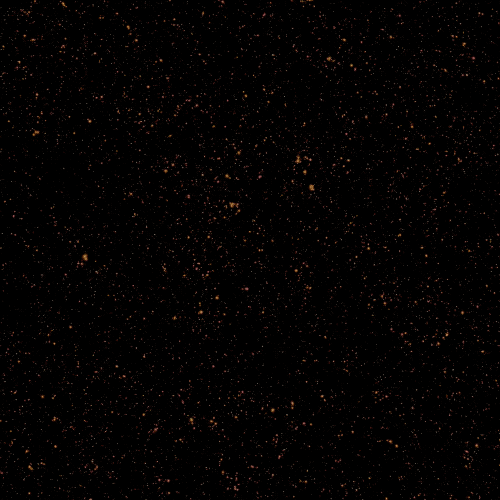
This animation shows the type of science that astronomers will be able to do with future Roman deep field observations. The gravity of intervening galaxy clusters and dark matter can lens the light from farther objects, warping their appearance as shown in the animation. By studying the distorted light, astronomers can study elusive dark matter, which can only be measured indirectly through its gravitational effects on visible matter. As a bonus, this lensing also makes it easier to see the most distant galaxies whose light they magnify.
The simulation demonstrates how Roman will see even farther back in time thanks to natural magnifying glasses in space. Huge clusters of galaxies are so massive that they warp the fabric of space-time, kind of like how a bowling ball creates a well when placed on a trampoline. When light from more distant galaxies passes close to a galaxy cluster, it follows the curved space-time and bends around the cluster. That lenses the light, producing brighter, distorted images of the farther galaxies.
Roman will be sensitive enough to use this phenomenon to see how even small masses, like clumps of dark matter, warp the appearance of distant galaxies. That will help narrow down the candidates for what dark matter could be made of.

In this simulated view of the deep cosmos, each dot represents a galaxy. The three small squares show Hubble's field of view, and each reveals a different region of the synthetic universe. Roman will be able to quickly survey an area as large as the whole zoomed-out image, which will give us a glimpse of the universe’s largest structures.
Constructing the cosmos over billions of years
A separate simulation shows what Roman might expect to see across more than 10 billion years of cosmic history. It’s based on a galaxy formation model that represents our current understanding of how the universe works. That means that Roman can put that model to the test when it delivers real observations, since astronomers can compare what they expected to see with what’s really out there.
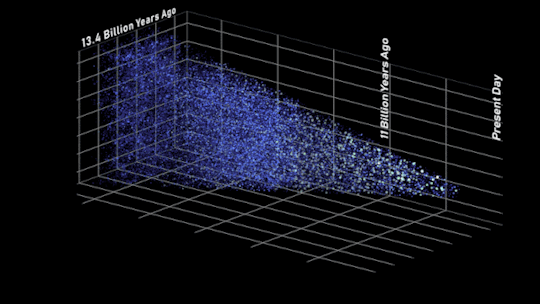
In this side view of the simulated universe, each dot represents a galaxy whose size and brightness corresponds to its mass. Slices from different epochs illustrate how Roman will be able to view the universe across cosmic history. Astronomers will use such observations to piece together how cosmic evolution led to the web-like structure we see today.
This simulation also shows how Roman will help us learn how extremely large structures in the cosmos were constructed over time. For hundreds of millions of years after the universe was born, it was filled with a sea of charged particles that was almost completely uniform. Today, billions of years later, there are galaxies and galaxy clusters glowing in clumps along invisible threads of dark matter that extend hundreds of millions of light-years. Vast “cosmic voids” are found in between all the shining strands.
Astronomers have connected some of the dots between the universe’s early days and today, but it’s been difficult to see the big picture. Roman’s broad view of space will help us quickly see the universe’s web-like structure for the first time. That’s something that would take Hubble or Webb decades to do! Scientists will also use Roman to view different slices of the universe and piece together all the snapshots in time. We’re looking forward to learning how the cosmos grew and developed to its present state and finding clues about its ultimate fate.
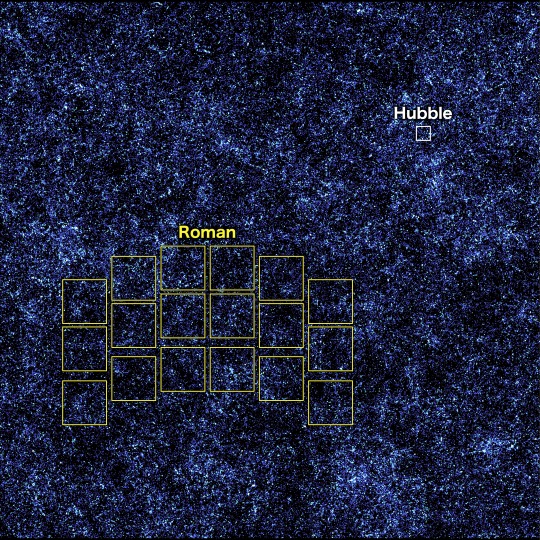
This image, containing millions of simulated galaxies strewn across space and time, shows the areas Hubble (white) and Roman (yellow) can capture in a single snapshot. It would take Hubble about 85 years to map the entire region shown in the image at the same depth, but Roman could do it in just 63 days. Roman’s larger view and fast survey speeds will unveil the evolving universe in ways that have never been possible before.
Roman will explore the cosmos as no telescope ever has before, combining a panoramic view of the universe with a vantage point in space. Each picture it sends back will let us see areas that are at least a hundred times larger than our Hubble or James Webb space telescopes can see at one time. Astronomers will study them to learn more about how galaxies were constructed, dark matter, and much more.
The simulations are much more than just pretty pictures – they’re important stepping stones that forecast what we can expect to see with Roman. We’ve never had a view like Roman’s before, so having a preview helps make sure we can make the most of this incredible mission when it launches.
Learn more about the exciting science this mission will investigate on Twitter and Facebook.
Make sure to follow us on Tumblr for your regular dose of space!
#NASA#astronomy#telescope#Roman Space Telescope#dark matter#galaxies#cosmology#astrophysics#stars#galaxy#Hubble#Webb#spaceblr
2K notes
·
View notes
Text
Advanced Placement Credit Given to…



☾☼✧☽ summary: the ap classes these different characters would take
☾☼✧☽ type: headcannons, modern au
☾☼✧☽ warnings: n/a
☾☼✧☽ a/n: my ap classes are killing me-
▢▢▢▢▢▢▢▢▢▢▢▢▢▢▢▢
✧ albedo
chemistry and art history
I think the chemistry part is obvious, as an alchemist he would find this kind of thing fascinating. Obviously he would enjoy the rigor and fast paced layout of the class. CB requires 16 labs to be done throughout the year in ap chem and he would adore this as well. Definitely thinking he’s pulling an A in this class, actually an A+
Albedo’s an artist and a curious individual. I imagine he would find himself interested in the history of art and the different pieces. As a chemist he is always chasing after whys and hows; it only makes sense for him to look for this in art as well. He would also pull a high A I feel in this class due to his commitment to his studies
✧ amber
human geography
Amber isn’t much of an academic, but she appreciates geography I imagine. As an outrider who is exploring and navigating, she would find the history of places and maps fascinating. Amber also, or at least I seem to think, would have a hard time taking an intense ap class. This one is one of the easiest out of the ones CB offers. I think Amber would get an A in this class and I am firm believer that she unfortunately is the one who reminds the teacher when homework is due :/
✧ diluc
macroeconomics, microeconomics, and statistics
Macroeconomics covers the economic of wider areas like regions and nations. Diluc being someone who has a business that is known worldwide would I feel find value in knowing about the economics of not only his country but others as well.
Microeconomics is more focused on the economics of an individual thing like companies. This is a class that would give the insight on the business side of economics.
Business requires a lot of data. Most of the time when analyzing data statistics is involved. Diluc would use statistics I feel to see what kinds of wine tend to sell on what regions and what happens when prices increase and decrease.
Diluc I see passing all of these classes, I think the economic ones with an A and stats with a high B.
✧ jean
comparative government and politics and psychology
Government and politics I feel is self explanatory because of how Jean pretty much runs Mondstadt. She has to contact diplomats from all nations and make negotiations. I think she would also find it kind of interesting about different types of government and how things are ran.
Jean would have to on some level be a people person. To some degree she would have to know how people think and feel. She would find the makeup of the human brain fascinating I think.
Jean is not letting herself get anything less than an A, let’s be real-
✧ lisa
english language and composition, english literature and composition, and latin (or teyvat’s equivalent, maybe Khaenri’ah’s language..)
Tumblr deleted Lisa’s part like 3 TIMES kill me :/. Anyways, I think the language composition and literature composition are obvious. I mean…..she’s a librarian.
The language thing I feel would stem from her wanting to be able to read more books. Therefor she wanted to learn a new language to broaden her selection of books
She wanted to take ap chem but decide to just do general instead. I definitely think Lisa could get an A in all three classes. I just think she gets distracted easily and would need someone to help her focus.
✧ sucrose
chemistry, biology, and computer science a
Obviously she would take chem with Albedo. I think it would take her a bit longer to grasp some of the concepts and Albedo might have to help her out some but she does overall well in the class, I say an A-
She flies through biology without a problem due to her interest in life forms. Is definitely earning an A+
OKAY HEAR ME OUT! So Sucrose wants to study how to manipulate life to make it better and brighter. I think she would be all over the idea of being a bioengineer. Thus, she would learn how to code.
Sucrose would do well in the comp sci a course I believe. I could see her being a really good problem solver and understanding Java well (the programming language you learn in comp sci a)
✧ venti
music theory
Don’t come for my throat, I love Venti I swear. However, I do not think he would preform well in this class. Music theory isn’t really so much about composing music as it is about the rules of composing music. I think Venti would do wonderfully with dictation (where you hear notes/chords and have to identify and write them). As well as sight singing (where you are given a sheet of music and have a certain amount of time to practice and sing it).
We all know Venti is great at composing music…but he doesn’t really like playing by the rules (aka all the figured bass line shit), so I don’t think he’d do so good. Venti can read sheet music sure but he didn’t take the time to memorize all the special symbols when he just knows music.
I’m going to be generous and give him a C considering he can do the dictation and sight singing. Anything where he’s having to analyze and determine cadences or other conceptual stuff he’s kind of screwed
▢▢▢▢▢▢▢▢▢▢▢▢▢▢▢▢
kaeya does not take any ap classes however he relentlessly bothers albedo while he is trying to study. Also totally tries to convince lisa at least once to bail on writing a paper and come to some party or whatever.
▢▢▢▢▢▢▢▢▢▢▢▢▢▢▢▢
thank you so much for reading !
stay hydrated and safe !
#albedo x reader#albedo#albedo x you#albedo genshin impact#lisa genshin impact#lisa x reader#lisa minci#jean genshin impact#jean x reader#diluc ragnvindr#diluc x reader#genshin diluc#diluc x you#sucrose#sucrose genshin impact#sucrose x reader#genshin venti#venti x reader#genshin impact venti
52 notes
·
View notes
Text
There are three projects that I consider some of the hardest in computer science:
Compiler - Requires tons of text parsing, type system configuration, and code generation. A conglomerate of data flow.
Operating system - Build everything from the ground up. You don't even start with an allocator. Implement. Everything.
Browser - So many standards need to be implemented, it's a feat of graphics programming. Just the SVG specification is 900 pages.
If I'm missing anything on that same level of difficulty, let me know.
Some things people have mentioned:
X11 Standard: Not 100% sure why, but I'd assume an entire windowing/desktop environment interface would be crazy. From light research, I found that there seems to be a lot of backwards compatibility, and that Wayland is just more straightforward.
Emulators: Simpler consoles like the NES would already be substantial to emulate, let alone something like the Switch or PS5.
Physics engines: So much math. Raycasting, collisions, islands, and much more. And if you don't get it right, everything literally just explodes.
105 notes
·
View notes
Note
If Weiss were a teacher, which subject do you think she'd teach? I like to think she'd teach Dust studies in Remnant and history in a regular world. Thoughts?
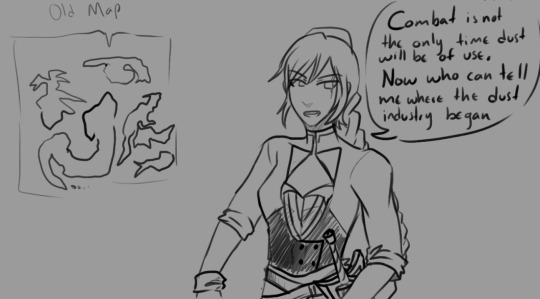
She out of all of them was driven and hungry to learn more and more, so I do think she'd have some Dust/ Historical topics. She has a concentration in field combat due to her ability to adapt to whatever environment she fights in and her keen mind in the layout of the fight zone.
In terms of IRL? I can see her as a forensic science or computer data analyst. Something that requires a unique and useful utilization. We all know she wouldn't just be a teacher, she'd have a master's and working up to a doctorate and is 3 months away from having her PhD and teaching at a university level.
61 notes
·
View notes
Text
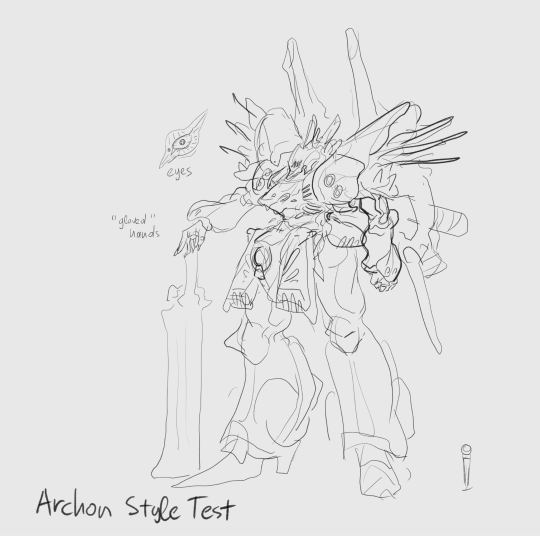
Proto-Archon Achamoth
After five years of research and design guided by the initial discoveries of Amirani, Pearson et al, we believe that we have produced a unique interface between the biological and the mechanical, vastly exceeding the capabilities of even integrated syntra, that should prove capable to achieve a nymphic status between hylikos and ██████
With the usage of existing supply lines, we expect to be able to produce a suitable prototype within the next two years. Sophia se kathodigei.
-- Correspondence from █████████ to ██████, retrieved from Dir. Pearson's communications log by ██████
Archons represent the true heights that man can achieve in nearly every discipline touched by them: not just computer science, materials science, and engineering, but psychology, biology, applied theoretical physics, and chemistry. No single person can truly understand the functions of an Archon- it is a construct that requires the unity of man to function. To pilot an Archon unit is to become one with a monster: a robot with synthetic muscle netting, a circulatory system. A spongy mass of ganglia, gold wire and pale nerves intermingling under a ceramic-chitin plate of armor, thrumming with impulse and sensory data.
To pilot an Archon, is to transcend your humanity.
-- Dir. Pearson, onboarding speech to new candidates of the Archon Program
A concept sketch of Proto-Archon Achamoth by @himecommunism !
78 notes
·
View notes
Note
Do you think a degree is a good place to start to get into the narrative designer scene? I don't have any sort of degrees and whenever I look at job postings it kind of intimidates me.
You don't necessarily need a game design degree. There isn't a single route into getting a narrative design job and most of the narrative people I've worked with have academic experience in other areas. Classics, publishing, linguistics, screenwriting (and other kinds of writing), film, literature, teaching, computer science, biomedical science, history, and philosophy are all things that come to mind off the top of my head. I personally have an English Literature bachelor's degree and a postgrad teaching certificate.
I do know a few narrative people with game design degrees and they speak highly of that experience - but it isn't essential and there's some ambivalence in the field of games about how much value you get from it. It would really depend on where you were attending and who was teaching it, and so on. Do research the lecturers and their industry experience before signing up to anything!
A lot of narrative jobs will require some sort of degree. Not all! But many will explicitly. Then, more trickily, there's the implicitness of it all: it's rare that I've encountered a narrative person at a studio who doesn't have a degree, and among many other things that's a marker of the lack of class diversity in the field.
That said: a degree is unlikely to directly help you get a narrative job unless it's very specific (eg you're an expert in the Franklin expedition, and the game is about trying to rescue the ships). It will more give you transferable skills. My PGCE helped me learn to deliver presentations and pitches. My English degree helped me discuss art. My PGCE taught me about being rigorous about developing skills and assessing where I'm at and taking feedback. My English degree pushed me to read widely. But none of that fed directly into getting a job in games - when I graduated from my undergrad degree I didn't know how games jobs worked anyway and neither did my career advisors.
Whether or not you have a degree, you need to have examples of your skills and how you've applied them to your work. If you've had jobs in other areas, you can refer to that - you're great at spotting data entry errors? fantastic. you can meditate an argument between a group of crying five year olds? great. And most of all you need completed examples of your writing and your games work for your portfolio. It doesn't have to be massive ambitious projects, but you need to prove that you know how games fit together, what makes them feel good or not good to play, and can apply it to your own work.
Make interactive fiction. Make a small game, or a bigger game, in bitsy. Join a game jam and work with other people on something - that will give you something to talk about in interviews, and teach you about working with other people on a creative project. Finish things! Not only will that give you more to discuss, it will also mean that you have a better sense of the bigger picture of interactive storytelling. I got my first studio job off the back of years of short hobby IF and a completed CoG game; I brought skills from my studies but I wouldn't have got a foot in the door without those projects to show that I could write well, understood narrative design, and could finish games.
Some unsolicited advice:
Be cautious about expensive game writing courses. They can be valuable for networking and pushing your to be rigorous about your work, or they can be a money sink. Remember that in 99% of "dream studios" there will be people working there for whom it's a nightmare. Don't put people on pedestals and remember that studio games are a team effort - but also respect and celebrate your own contributions. Don't dunk on games in public: I've seen a lot of people do that and then turn around and ask for a job from the people they were dunking on. It doesn't make people inclined to say yes. Don't neglect your peers in favour of trying to get in with a crowd that's already established; but if trusted people offer mentorship (such as Limit Break in the UK) go for it. When you are one of those established people, don't pull up the ladder behind you.
Here is a doc of resources from Raymond Vermeulen and another from Adanna aka AFNarratives. Also there are a ton of free talks available from AdventureX, Narrascope, Writer's Guild of Great Britain, and the GDC Vault about narrative which are both interesting and useful.
None of this is any guarantee of anything, there are a lot of people competing for not many jobs and if you find someone selling One Weird Trick to get into the field of narrative design, avoid them. I've seen talented people with a lot of experience struggling to find another contract after one has ended. So I don't want to act like I have it all figured out - but I hope it's helpful.
104 notes
·
View notes
Text
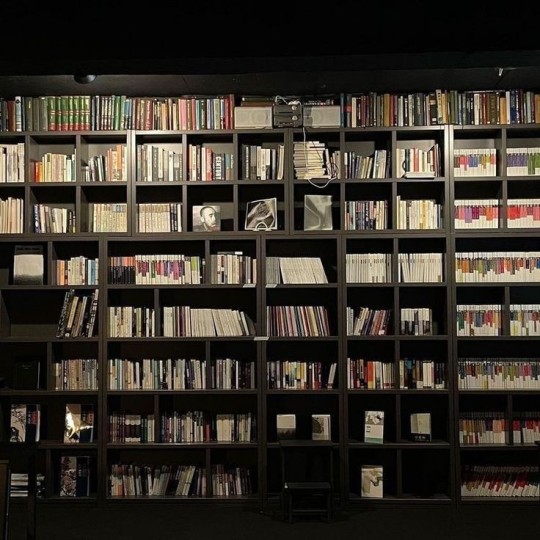
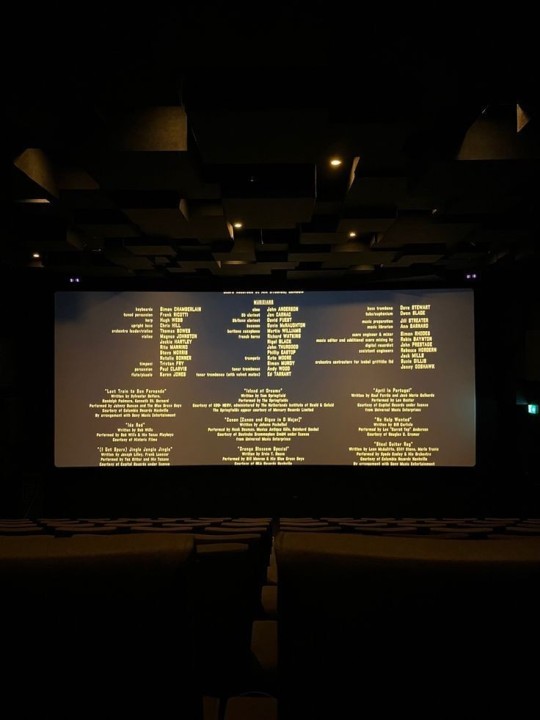

## What’s a Cyber Forensic Investigator?
Master post - part 1 • part 2
You must have heard bout forensics yk investigating bout dead people who might have been killed and all
You must have seen shows on those topics too.Cyber forensic investigator is just of same kind but investigating through all types of modern gadgets.
Catching hackers and all but cooler

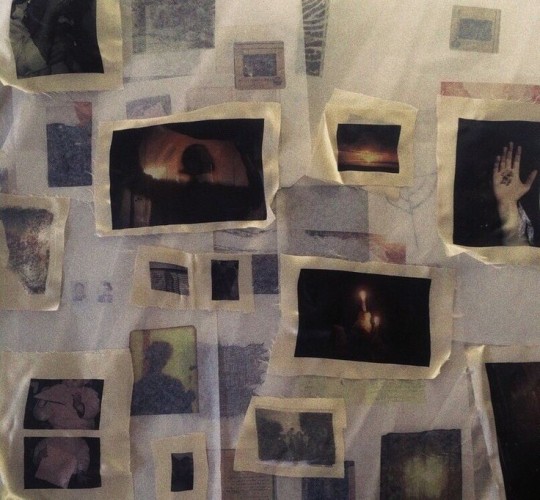

### The Money Talk: How Much Do They Make?
- **Cash Money**: Expect to rake in about $60k to $120k a year. If you are very much experienced and skilled then you can expect about 150k+ a year.(obv different countries and companies may have different wages)
### Companies That Want You
- **Tech Titans**: Google, Amazon, Facebook—they all have requirement for such heroes
- **Gov Jobs**: FBI, CIA—basically every spy agency wants you.
- **Cybersecurity Firms**: CrowdStrike, McAfee—so every gateway you go you gonna have opportunities everywhere.
### What Other Forensic Investigators Are There?
- **Forensic Pathologists**: Real-life detectives who figure out how someone died. Less tech, more science.
- **DNA Analysts**: The ones matching DNA samples
- **Forensic Accountants**: Following the money to catch fraudsters and scammers
- **Toxicologists**: Poison experts, figuring out if someone’s been covertly poisoned. (Yeaa yk snow white story)
### What’s the Work Environment Like?
- **The Lab**: Imagine a room filled with more screens than your gaming setup. Gadgets galore, maybe even a Red Bull or two
- **On the Move**: Sometimes you’re out in the field, collecting evidence. Think of it like collecting rare items in a game.
- **Remote Vibes**: You could be solving cybercrimes from your bed in your PJs .
### How Long Does It Take to Become One?
- **Time Investment**: About 4 years for a bachelor’s, and then 1-2 more years for a master’s if you’re going all-in. So, 5-6 years total. But hey, good things take time, right?
### What Do You Study?
- **Cybersecurity/Computer Science**: Your main jams. Think of them as the ultimate cheat codes for this career.
- **Digital Forensics**: Specialized courses where you learn to be a digital ninja.
- **Law and Ethics**: Learning how to catch the bad guys without breaking the law yourself. (You yourself don't want to be troubled obviously)
### Subjects You Need to Get Into It
- **Math**: Yep, but not the boring kind—more like coding and algorithms.
- **Computer Science**: Your go-to for everything techy.
- **Optional Nerd Points**: Chemistry/Physics if you’re into hardware forensics or just want to flex those brain muscles.
### Work Hours: What to Expect?
- **9 to 5-ish**: Standard hours if you’re working for a company, but expect some late nights or weekend shifts when big cases pop up.
- **On-Call Madness**: Sometimes you’re on-call like a digital firefighter. Cyber-attack at 3 AM? Time to suit up (or log in) and handle it.
- **Flexible/Remote**: If you’re lucky, you can work from home. Just remember, no solving crimes in your underwear during Zoom meetings!
### Interview with a Cyber Forensic Investigator
**Interviewer**: What’s a day in the life of a cyber forensic investigator?
**Cyber Sleuth**: Imagine rolling out of bed, grabbing your coffee, and diving into cases. I’m talking analyzing hard drives, sifting through emails, or tracking down cyberattack origins. Some days it’s all data, other days I’m working with law enforcement or testifying in court. Never a dull moment!
**Interviewer**: What’s the coolest case you’ve worked on?
**Cyber Sleuth**: Helping bust a phishing ring that was scamming millions. Tracked their digital footprints, caught the culprits, and recovered their loot. Felt like a total legend.
**Interviewer**: Ever seen some dark stuff, like murders?
*Cyber Sleuth**: Yeah, I’ve stumbled across some pretty grim stuff. It’s not all memes and malware—sometimes it’s serious business. But catching those bad guys makes it all worth it.
**Interviewer**: Have you ever been on the dark web?
**Cyber Sleuth**: Oh, for sure. It’s like the sketchy underbelly of the internet. Lots of shady deals. I go there when I need to, but it’s not a fun hangout spot.
**Interviewer**: How dark can a case get?
**Cyber Sleuth**: It can get really intense. I’ve worked on cases involving human trafficking and other serious crimes. It’s tough, but making a difference makes it worth it.
**Interviewer**: Any advice for someone who wants to get into this field?
**Cyber Sleuth**: Stay curious and keep learning. Tech evolves fast, so you’ve gotta keep up. And don’t be afraid to dig deep—sometimes the answers are buried in tons of data, but finding them is like hitting gold.
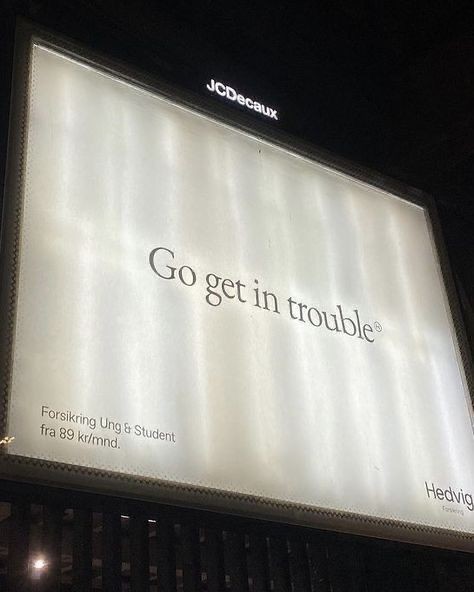


So if you’re into tech and have subjects like mathematics , chemistry and physics then you are all set to start your journey.i have seen ppl running for a common a job and all and they are not even specified about what they want. So just research and find out what you want.

#masterpost#career#self development#light academia#study blog#academic validation#academic weapon#student life#study#study motivation#study with me#studyblr#studyblr community#forensics#computer#codeblr#masterpostjam
11 notes
·
View notes
Text
Cooking à la replicator
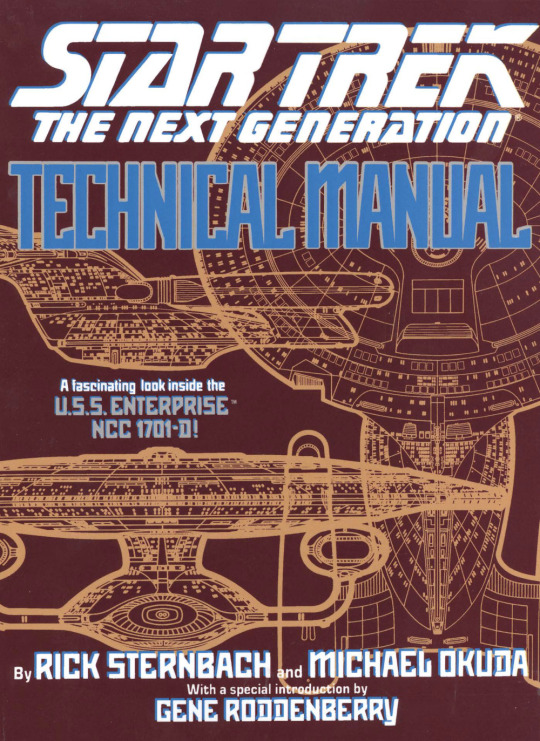
Chapter 7.6 of the semi-canonical STAR TREK: THE NEXT GENERATION TECHNICAL MANUAL by Rick Sternbach and Michael Okuda includes a description of how the replicators work that offers some interesting background for how people in the TNG era might approach food and cooking in the era of replication technology.
The first and most important point is that the molecular patterns replicators use to recreate objects are a form of compressed storage, akin to a compressed audio or image file. The text explains:
Because of the massive amount of computer memory required to store even the simplest object, it is impossible to record each molecule individually. Instead, extensive data compression and averaging techniques are used. Such techniques reduce memory storage required for the molecular patterns by factors approaching 2.7 x 10^9. The resulting single-bit inaccuracies do not significantly impact the quality of most reproduced objects, but preclude the use of replicator technology to re-create living objects. … The data themselves are subject to significant accuracy limits.
So, a replicator pattern is an approximation of the original object, just as a JPEG image scanned from a 35mm negative is only an approximation of the original negative. Data compression issues also mean that there are tradeoffs between imaging fidelity, memory storage requirements, and the power required for replication. The text notes:
There are two main replication systems on board the Enterprise. These are the food synthesizers and the hardware replicators. The food replicators are optimized for a finer degree of resolution because of the necessity of accurately replicating the chemical composition of foodstuffs. Hardware replicators, on the other hand, are generally tuned to a lower resolution for greater energy efficiency and lower memory matrix requirements. A number of specially modified food replication terminals are used in sickbay and in various science labs for synthesis of certain pharmaceuticals and other scientific supplies.
The chapter doesn't specifically discuss how these things impact food and food preparation, but there's enough information to infer a number of additional points:
There is a quantifiable difference between replicated and non-replicated food, and probably a qualitative one as well. A fresh apple is not identical to a replicated copy of that apple, so we can surmise that beings with sufficiently sensitive palates could probably tell the difference. Furthermore, a fair number of people would probably insist that they could tell the difference, whether they actually could or not!
The range of foods that can be replicated has significant practical limits. In order to replicate something, you need either a preexisting molecular pattern or an extant example you can scan. Furthermore, because each pattern is resource-intensive to store, a given system can really only retain a finite number of patterns. So, for rare, exotic, or unusual foodstuffs, no molecular pattern may be available, and finding a molecularly scannable example might be difficult.
Because of the "single-bit inaccuracies," generation loss is likely an issue, so replicating replicated food will produce a qualitatively worse result (although each first-generation replicated copy of the same pattern is theoretically identical).
The difference in replicator resolution probably has many gradations. For instance, a food replicator included in a shuttlecraft survival kit might be tuned for the lowest resolution that's still safe for foodstuff preparation, to conserve power, while replicators used for synthesizing pharmaceuticals in sickbay might have somewhat higher resolution than the ones in the mess hall.
So, what does this mean for TNG-era cooks like Benjamin Sisko and his dad? Some guesses:
Chefs might use specialized ultra-high-resolution replicators, either ones specifically designed for culinary use or repurposed ultra-high-res replicators from some other application (like a pharmaceutical replicator), to produce higher-quality replicated foodstuffs.
Cooks and bakers may prefer to replicate raw materials and then prepare them the old-fashioned way. For instance, it would probably make more sense for a baker to have replication patterns for different kinds of flour, eggs, sugar, etc. than to try to image and store complete breads and cakes, since the same ingredients could be used to create many different finished products.
People undoubtedly still cook with non-replicated ingredients where they can get them, and probably routinely combine replicated and non-replicated ingredients. An apple pie made with fresh-picked apples and replicated flour and sugar is probably still better than a wholly replicated pie.
There might be a whole genre of cookbooks focused on cooking with replicated food, aimed specifically at working around the impact of resolution-related "single-bit inaccuracies" on how food tastes.
People probably have strong opinions about the impact of replication, such as which foods or drinks can't be satisfactorily replicated, and the pros and cons of different replicated and non-replicated foodstuffs.
People on starships probably occasionally try to make food or beverages with the sickbay replicators, insisting that it tastes better that way.
#star trek#star trek the next generation#rick sternbach#michael okuda#pseudoscientific gobbledygook#star trek deep space nine#benjamin sisko#there WOULD be extensive discussions#about how or whether replicated food could be kosher or halal#except that star trek is explicitly antisemitic and islamophobic#and discovery asserts that islam and judaism were exterminated in the 21st century
37 notes
·
View notes
Text
Two months after NASA crews reestablished diagnostic communications with Voyager 1, they just recently received scientific observational data as well.
Transmitted via the last remaining instruments still operational aboard the furthest man-made object from Earth, the data provides critical observations on plasma and magnetism in interstellar space.
It’s been 46 years and 7 months since Voyager 1 left Earth, and 11 years and 8 months since it bade Pluto farewell and left our solar system. It’s currently 15 billion miles, or 24 billion kilometers from Earth.
GNN reported that in March 2024, mission control for Voyager 1 at NASA’s Jet Propulsion Laboratory at California Technical Institute, managed to hone in on the issue that was preventing two-way communication with the probe.
After diagnosing and fixing this issue by dividing corrupted computer code into short sections and storing them in different places on the probe’s flight data subsystem before ensuring the onboard computer could find them again, JPL once again issued commands to restart sending scientific data on May 19th.
Two of the four science instruments returned to their normal operating modes immediately. Two other instruments required some additional work, but now, all four are returning usable science data.
The four instruments study plasma waves, magnetic fields, and particles. Voyager 1 and Voyager 2 are the only spacecraft to directly sample interstellar space, which is the region outside the heliosphere — the protective bubble of magnetic fields and solar wind created by the Sun.
OTHER NASA PROJECTS TO GET EMOTIONAL ABOUT: The Mars InSight Lander Signs Off on Social Media With Encouragement for Humanity – LOOK
“We never know for sure what’s going to happen with the Voyagers, but it constantly amazes me when they just keep going,” Suzanne Dodd, Voyager’s project manager, told CNN in April.
In as little as one year or perhaps just a little longer, some of these four instruments will have to be powered because of the drain on the probe’s battery. By 2036, the probe will depart the Deep Space Network and be beyond all communications, carrying the Golden Record out into the unknown.
________________________________
HYPE!!!!!!
13 notes
·
View notes
Note
what's it like studying CS?? im pretty confused if i should choose CS as my major xx
hi there!
first, two "misconceptions" or maybe somewhat surprising things that I think are worth mentioning:
there really isn't that much "math" in the calculus/arithmetic sense*. I mostly remember doing lots of proofs. don't let not being a math wiz stop you from majoring in CS if you like CS
you can get by with surprisingly little programming - yeah you'll have programming assignments, but a degree program will teach you the theory and concepts for the most part (this is where universities will differ on the scale of theory vs. practice, but you'll always get a mix of both and it's important to learn both!)
*: there are some sub-fields where you actually do a Lot of math - machine learning and graphics programming will have you doing a lot of linear algebra, and I'm sure that there are plenty more that I don't remember at the moment. the point is that 1) if you're a bit afraid of math that's fine, you can still thrive in a CS degree but 2) if you love math or are willing to be brave there are a lot of cool things you can do!
I think the best way to get a good sense of what a major is like is to check out a sample degree plan from a university you're considering! here are some of the basic kinds of classes you'd be taking:
basic programming courses: you'll knock these out in your first year - once you know how to code and you have an in-depth understanding of the concepts, you now have a mental framework for the rest of your degree. and also once you learn one programming language, it's pretty easy to pick up another one, and you'll probably work in a handful of different languages throughout your degree.
discrete math/math for computer science courses: more courses that you'll take early on - this is mostly logic and learning to write proofs, and towards the end it just kind of becomes a bunch of semi-related math concepts that are useful in computing & problem solving. oh also I had to take a stats for CS course & a linear algebra course. oh and also calculus but that was mostly a university core requirement thing, I literally never really used it in my CS classes lol
data structures & algorithms: these are the big boys. stacks, queues, linked lists, trees, graphs, sorting algorithms, more complicated algorithms… if you're interviewing for a programming job, they will ask you data structures & algorithms questions. also this is where you learn to write smart, efficient code and solve problems. also this is where you learn which problems are proven to be unsolvable (or at least unsolvable in a reasonable amount of time) so you don't waste your time lol
courses on specific topics: operating systems, Linux/UNIX, circuits, databases, compilers, software engineering/design patterns, automata theory… some of these will be required, and then you'll get to pick some depending on what your interests are! I took cybersecurity-related courses but there really are so many different options!
In general I think CS is a really cool major that you can do a lot with. I realize this was pretty vague, so if you have any more questions feel free to send them my way! also I'm happy to talk more about specific classes/topics or if you just want an answer to "wtf is automata theory" lol
#asks#computer science#thank you for the ask!!! I love talking abt CS and this made me remember which courses I took lol#also side note I went to college at a public college in the US - things could be wildly different elsewhere idk#but these are the basics so I can't imagine other programs varying too widely??
10 notes
·
View notes
Text
The Coprophagic AI crisis

I'm on tour with my new, nationally bestselling novel The Bezzle! Catch me in TORONTO on Mar 22, then with LAURA POITRAS in NYC on Mar 24, then Anaheim, and more!

A key requirement for being a science fiction writer without losing your mind is the ability to distinguish between science fiction (futuristic thought experiments) and predictions. SF writers who lack this trait come to fancy themselves fortune-tellers who SEE! THE! FUTURE!
The thing is, sf writers cheat. We palm cards in order to set up pulp adventure stories that let us indulge our thought experiments. These palmed cards – say, faster-than-light drives or time-machines – are narrative devices, not scientifically grounded proposals.
Historically, the fact that some people – both writers and readers – couldn't tell the difference wasn't all that important, because people who fell prey to the sf-as-prophecy delusion didn't have the power to re-orient our society around their mistaken beliefs. But with the rise and rise of sf-obsessed tech billionaires who keep trying to invent the torment nexus, sf writers are starting to be more vocal about distinguishing between our made-up funny stories and predictions (AKA "cyberpunk is a warning, not a suggestion"):
https://www.antipope.org/charlie/blog-static/2023/11/dont-create-the-torment-nexus.html
In that spirit, I'd like to point to how one of sf's most frequently palmed cards has become a commonplace of the AI crowd. That sleight of hand is: "add enough compute and the computer will wake up." This is a shopworn cliche of sf, the idea that once a computer matches the human brain for "complexity" or "power" (or some other simple-seeming but profoundly nebulous metric), the computer will become conscious. Think of "Mike" in Heinlein's *The Moon Is a Harsh Mistress":
https://en.wikipedia.org/wiki/The_Moon_Is_a_Harsh_Mistress#Plot
For people inflating the current AI hype bubble, this idea that making the AI "more powerful" will correct its defects is key. Whenever an AI "hallucinates" in a way that seems to disqualify it from the high-value applications that justify the torrent of investment in the field, boosters say, "Sure, the AI isn't good enough…yet. But once we shovel an order of magnitude more training data into the hopper, we'll solve that, because (as everyone knows) making the computer 'more powerful' solves the AI problem":
https://locusmag.com/2023/12/commentary-cory-doctorow-what-kind-of-bubble-is-ai/
As the lawyers say, this "cites facts not in evidence." But let's stipulate that it's true for a moment. If all we need to make the AI better is more training data, is that something we can count on? Consider the problem of "botshit," Andre Spicer and co's very useful coinage describing "inaccurate or fabricated content" shat out at scale by AIs:
https://papers.ssrn.com/sol3/papers.cfm?abstract_id=4678265
"Botshit" was coined last December, but the internet is already drowning in it. Desperate people, confronted with an economy modeled on a high-speed game of musical chairs in which the opportunities for a decent livelihood grow ever scarcer, are being scammed into generating mountains of botshit in the hopes of securing the elusive "passive income":
https://pluralistic.net/2024/01/15/passive-income-brainworms/#four-hour-work-week
Botshit can be produced at a scale and velocity that beggars the imagination. Consider that Amazon has had to cap the number of self-published "books" an author can submit to a mere three books per day:
https://www.theguardian.com/books/2023/sep/20/amazon-restricts-authors-from-self-publishing-more-than-three-books-a-day-after-ai-concerns
As the web becomes an anaerobic lagoon for botshit, the quantum of human-generated "content" in any internet core sample is dwindling to homeopathic levels. Even sources considered to be nominally high-quality, from Cnet articles to legal briefs, are contaminated with botshit:
https://theconversation.com/ai-is-creating-fake-legal-cases-and-making-its-way-into-real-courtrooms-with-disastrous-results-225080
Ironically, AI companies are setting themselves up for this problem. Google and Microsoft's full-court press for "AI powered search" imagines a future for the web in which search-engines stop returning links to web-pages, and instead summarize their content. The question is, why the fuck would anyone write the web if the only "person" who can find what they write is an AI's crawler, which ingests the writing for its own training, but has no interest in steering readers to see what you've written? If AI search ever becomes a thing, the open web will become an AI CAFO and search crawlers will increasingly end up imbibing the contents of its manure lagoon.
This problem has been a long time coming. Just over a year ago, Jathan Sadowski coined the term "Habsburg AI" to describe a model trained on the output of another model:
https://twitter.com/jathansadowski/status/1625245803211272194
There's a certain intuitive case for this being a bad idea, akin to feeding cows a slurry made of the diseased brains of other cows:
https://www.cdc.gov/prions/bse/index.html
But "The Curse of Recursion: Training on Generated Data Makes Models Forget," a recent paper, goes beyond the ick factor of AI that is fed on botshit and delves into the mathematical consequences of AI coprophagia:
https://arxiv.org/abs/2305.17493
Co-author Ross Anderson summarizes the finding neatly: "using model-generated content in training causes irreversible defects":
https://www.lightbluetouchpaper.org/2023/06/06/will-gpt-models-choke-on-their-own-exhaust/
Which is all to say: even if you accept the mystical proposition that more training data "solves" the AI problems that constitute total unsuitability for high-value applications that justify the trillions in valuation analysts are touting, that training data is going to be ever-more elusive.
What's more, while the proposition that "more training data will linearly improve the quality of AI predictions" is a mere article of faith, "training an AI on the output of another AI makes it exponentially worse" is a matter of fact.

Name your price for 18 of my DRM-free ebooks and support the Electronic Frontier Foundation with the Humble Cory Doctorow Bundle.

If you'd like an essay-formatted version of this post to read or share, here's a link to it on pluralistic.net, my surveillance-free, ad-free, tracker-free blog:
https://pluralistic.net/2024/03/14/14/inhuman-centipede#enshittibottification

Image:
Plamenart (modified)
https://commons.wikimedia.org/wiki/File:Double_Mobius_Strip.JPG
CC BY-SA 4.0
https://creativecommons.org/licenses/by-sa/4.0/deed.en
#pluralistic#ai#generative ai#André Spicer#botshit#habsburg ai#jathan sadowski#ross anderson#inhuman centipede#science fiction#mysticism
553 notes
·
View notes
Text
lame portal-ified disney song by me
*to the tune of "Belle" from Beauty and the Beast*
"Miss Caroline!"
CAROLINE
Scientists' town,
Artificial village
Ev'ry day
New explosions there
Underground
Full of crazy people
Waking up to say:
SCIENTISTS
Oh god! Oh no! Emergency! Hold on!
CAROLINE
Here's Mr. Wheatley with reports, like always
I guess, some test-subjects just died
Making science, bending time
Since the day we dug that mine
In the state of Michigan
WHEATLEY
Good Morning, Miss Caroline!
CAROLINE
Good morning, Wheatley.
WHEATLEY
Where are you off to?
CAROLINE
The turret production-line.
Mr. Johnson wanted me to count
How many bullets per bullet it takes to…
WHEATLEY
Y-Yeah, that's great.
Jerry!
Down the lift shaft!
Hurry up, mate!
MALE SCIENTISTS
Look there she goes Miss Caroline, she's gorgeous
Smart and collected, can't you tell?
LADY SCIENTISTS
But she's just some poor assistant!
RICK/ADVENTURE CORE
But her body's like a pistol
SCIENTISTS
She's a heart and soul of Aperture for sure!
MALE SCIENTIST 1
Hello!
LADY SCIENTIST 1
Good day!
MALE SCIENTIST 1
How's hard-light bridges?
LADY SCIENTIST 2
Hello!
MALE SCIENTIST 2
Good day!
LADY SCIENTIST 2
Where's Mantis Men?
MALE SCIENTIST 3
We need more cubes!
LADY SCIENTIST 3
They're in the storage
CAROLINE
We're forwarding the cause of science with our lives!
CAVE JOHNSON
Ah, Caroline!
CAROLINE
Good morning, Mr. Johnson, sir!
I was just about to go the bullet expertise…
CAVE JOHNSON
Good, and what's about compensation vouchers? Are they ready?
CAROLINE
Yes, they're on your desk!
CAVE JOHNSON
Give them to the reception.
CAROLINE
Right! Of course!
CAVE JOHNSON
And tell the lab boys we need gel pipes
In spheres from 12 to 20 up and running by Tuesday
CAROLINE
Will be done, sir! Is there something else I can do for you?
CAVE JOHNSON
Keep doing what you're doing. Oh, and remind the repair wing guy that we still have that leak in the west hall.
CAROLINE
Yes, sir.
CAVE JOHNSON
Thank you, Caroline. You're a gem.
CAROLINE
Oh, Mr. Johnson.
SCIENTISTS
Look there she goes, the essence of our science!
(So close to Mr. Johnson, too)
With her long thick brown hair
And red scarf around her neck
What a puzzle this Miss Caroline must be!
CAROLINE
Oh, isn't this a triumph?
All the points of data ready to compute
Here's in Aperture Science
We can laugh at physics and just hope
We won't get sued!
VIRGIL/MAINTENANCE CORE
Now it's no wonder that we kicked Black Mesa
Our methods got no parallel
CRAIG/FACT CORE
But we signed their trading pact
Borealis is a fact!
KEVIN/SPACE CORE
And my daddy gotta take it into space!
SCIENTISTS
We are the best researching team!
We're making portals and we'll win this race!
GREG
Wow! It seems your pep talk got them all inspired, Mr. Johnson!
You're the greatest boss in the whole world!
CAVE JOHNSON
I know.
GREG
But there are still some problems with the GLaDOS project.
We don't have a required intellect substance.
CAVE JOHNSON
It's true, Greg.
But I've got my sights set on one particular assistant.
GREG
You mean Miss Caroline?!
CAVE JOHNSON
She's the one. The only woman whom I can trust to run the facility the way I used to.
GREG
But she's -
CAVE JOHNSON
The most loyal assistant I had.
GREG
I know, but -
CAVE JOHNSON
That makes her the best.
And don't Aperture Science deserve the best?
GREG
Of course it does!
CAVE JOHNSON
Right from the moment when I met her, saw her
I said she is the one we need!
She's the energy, no resting
And has passion for the testing
So I'm making plans to put her in the charge!
LADY SCIENTISTS
Look there
He goes
Isn't he handsome?
Oh, Mister Johnson
He's the best!
My circuits blow
I'm hardly breathing
He's such a tall, clever and charming man!
[some banter that I cut out, because i had no inspo]
CAROLINE
We're forwarding the cause of science with our souls!
CAVE JOHNSON
Just watch,
She's going to outlive you all!
SCIENTISTS
He chose Miss Caroline to be his heir
It's such an honor, to be fair!
LADY SCIENTISTS
But what if she doesn't want it?
MALE SCIENTISTS
Then we make her, like he ordered!
SCIENTISTS
'Cause she really is our only hope
She'll live forever like a God
She'll rule facility for long
Miss Caroline!
#portal#portal 2#portal stories: mel#portal caroline#portal glados#portal cave johnson#portal wheatley#portal virgil#portal rick#portal space core#portal fact core#portal greg#google who greg is if you don't know lol#i am cringe but i am free
49 notes
·
View notes